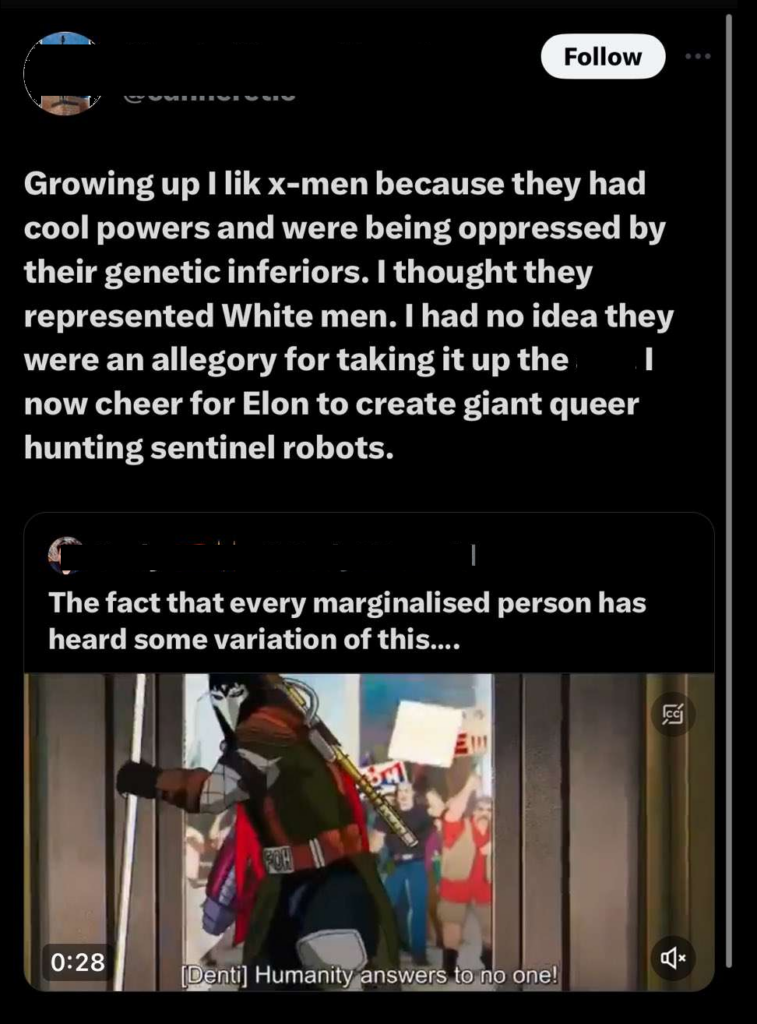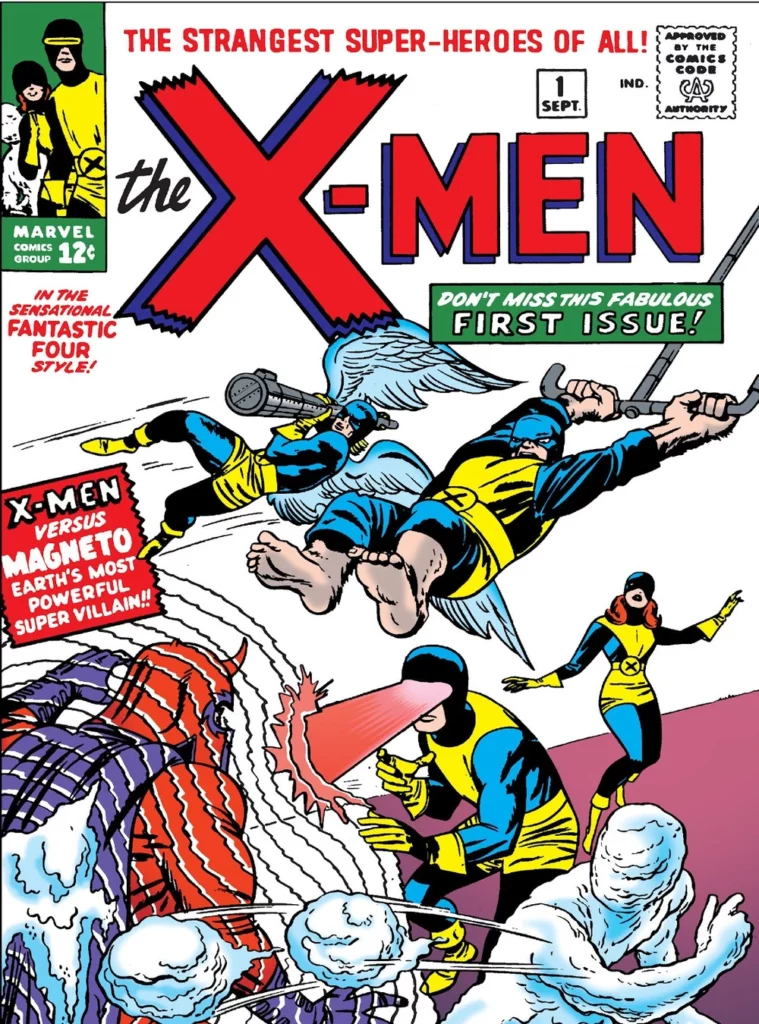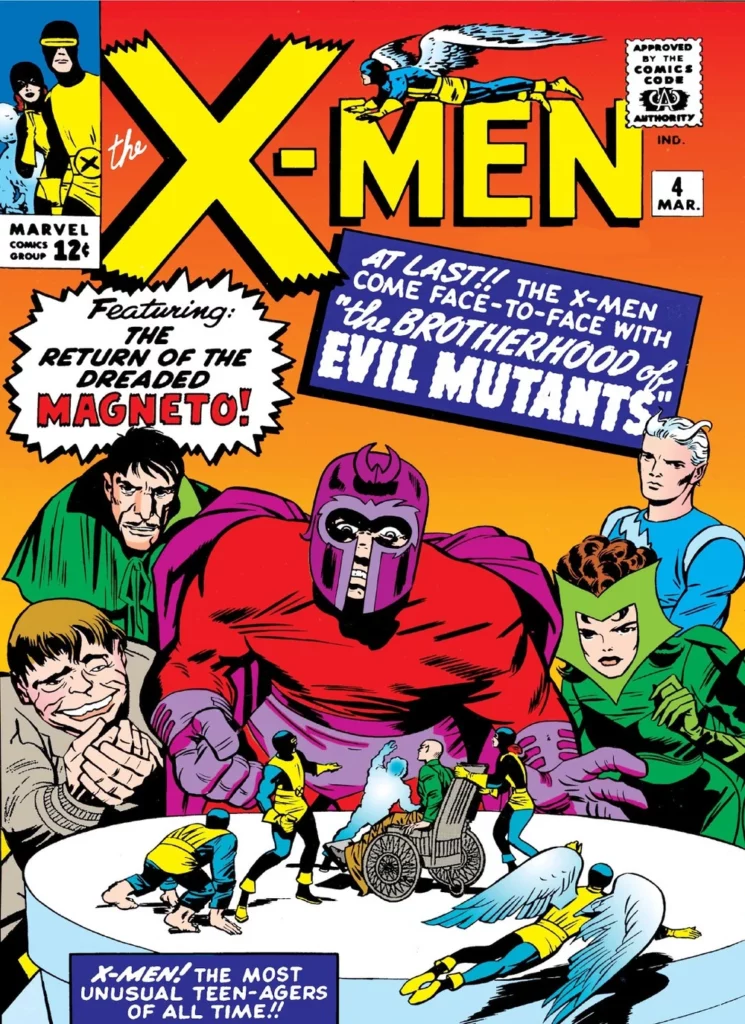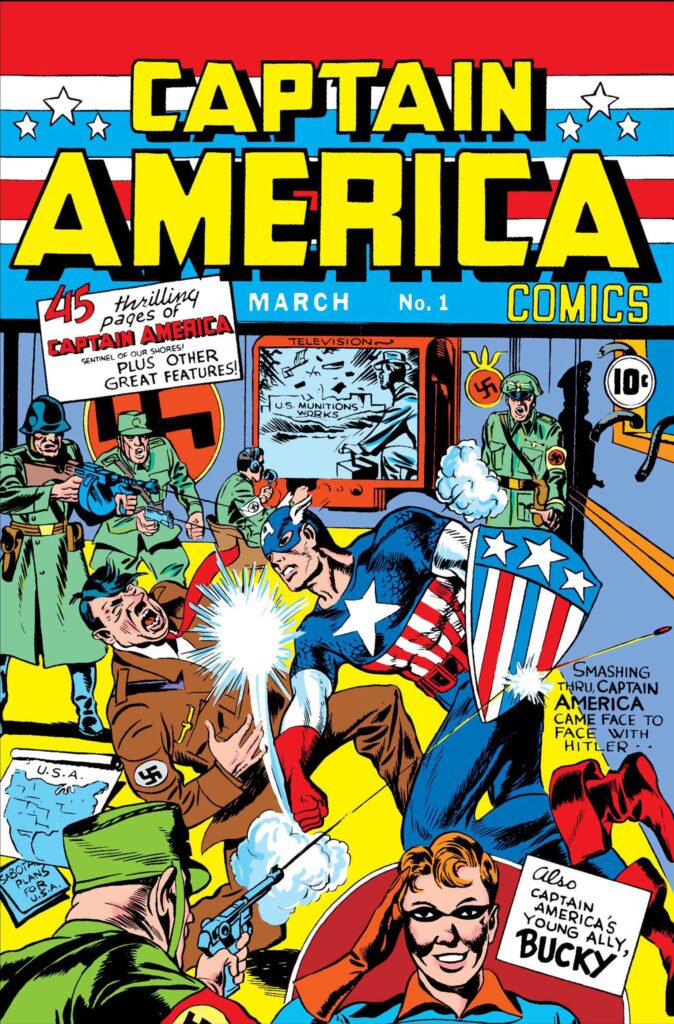Disney’s X-Men 97 has sparked a rash of internet chatter around the show “going woke” ruining childhood memories. After seeing a recent post, I thought it best to pause to talk about allegory, the history of the X-Men, comics in general, and how it informs superhero role-playing games to this day. While House Dok has discussed social issues at the core of the hobby before, let’s start with the social media post.
To move away from comics momentarily, let’s look at the Lion, the Witch, and the Wardrobe. This is the story of children who fall through a doorway into a magical realm, face an evil queen, and become kings and queens themselves as they explore adventures in the world of Narnia. CS Lewis explores his views on Christianity, Christ’s sacrifice, and what it means to be a Christian through the narrative. Without saying the word, it is an inherently Christian work.
The full scene:
Part 1: Allegory & Metaphor
To move away from comics momentarily, let’s look at the Lion, the Witch, and the Wardrobe. This is the story of children who fall through a doorway into a magical realm, face an evil queen, and become kings and queens themselves as they explore adventures in the world of Narnia. This is a story that explores CS Lewis’ views on Christianity, Christ’s sacrifice, and what it means to be a Christian. It is Christianity, without ever saying the word.
Now, let’s get back into spandex.
Joe Shuster and Jerry Siegel created Superman. Superman battled union busters and corrupt businessmen in this first incarnation creating a moral compass that has continued to influence the character. One of Superman’s defining characteristics is the idea that he is more powerful than anyone else, but yet does not use this power to bend the masses to his will. Superman could use their powers to become infinitely wealthy, but chooses to live a humble life. Siegel established a philosophy of strength in these early days, one that went beyond ‘might makes right.’ Superman emphasized that power shouldn’t be abused with his deeds, not words. Superman brought criminals over to the police, even though he didn’t need to. It would have been easy to follow in the steps of pulp characters before him and remove the criminal in more permanent ways, but Superman was an idea for justice, not revenge.
(Yes, police are their own loaded issue, but at the time the public narrative was much more positive, and stories of oppression and corruption had a much smaller audience.)
Time to talk X-Men.
Part 2: The X-Men, Spandex & Missing the Point
Creators Jack Kirby and Stan Lee saw a team that was both very human and set apart from humanity from the first issue of X-Men. The fourth issue begins exploring anti-mutant sentiment in a flashback around Scarlet Witch and Quicksilver. Importantly, this issue shows the militant group of mutants as having experienced these prejudices. Fan letters began appearing in issue six as part of a writing campaign to have the siblings crossover to become heroes. The language in those early issues might have been clumsy but the central allegory was in place and the tension that would come to define the X-brand followed quickly behind.
The tragedy of so much hate towards the X-Men coming from a platform that helped bring people together before rebranded itself as X probably shouldn’t be lost here either.
X-Men has served as an allegory for marginalized people since its inception. Many great articles explore the philosophical divide between Professor X and Magneto, some equating them to Martin Luther King Jr. and Malcolm X or integrationist and militant approaches. The X-Men as a metaphor illustrate the difficulties of a broad spectrum of people. The comic has drawn multiple comparisons to both racial components of American bigotry and struggles faced by the LGBTQIA+ community.
The X-Factor
However, as discussed in Part 1, these types of metaphors aren’t unique to X-Men. More importantly, the X-Men and related comics have become a prime example of how to highlight social issues in comics in a way that makes them approachable to others. Even if the titles sometimes struggle with broader internal narrative issues, the comics themselves maintain this connection to marginalization.
To broaden the lens across the larger comic book landscape, Superman, an undocumented migrant, chooses to live in secret to avoid exploitation. He uses his abilities to stop crime, and as Clark Kent, speaks out and informs others of injustice. But we’ve already talked about Supes. Iron Man’s greatest enemy is himself. Many of his iconic story arcs and villains stem directly from his own actions, forcing him to deal with the consequences. Even in the MCU, this is a central theme of both Iron Man 2 and 3. The 70s saw Green Lantern and Green Arrow explore different points of view, defining and challenging character moralities.
Spandex and social justice have been tied together for a very, very long time.
Part 3: Superheroes In Tabletop
To start this section, let me begin with a disclaimer used from one of our most popular adventures, Changeling’s Bargain:
Content Warning
The following adventure explores dehumanization, eugenics, racism, heterosexism, politics / political manipulation – fear mongering, gaslighting, child endangerment / imprisonment, abduction, and social manipulation. Additionally, this adventure focuses on parents that feel their children can be “fixed” or otherwise “made normal ” and is pulled from the tragedy of gay conversion camps along with recent real world events, which may induce strong emotions or reactions from players.
Please review with your players the Tone, Lines, and Veils of your Campaign before introducing this adventure. House Dok Productions does not condone or approve of these camps or laws that target the LGBTQIA+ community. This story is written where heroes can win, but the stakes and challenges are not minimized.
House Dok looks to promote inclusivity and hope.
Allegories In Comics & Campaigns
Comics have used people with powers as a stand in for people of a given minority. X-Men was inspired by the Civil Rights movement, and is rooted in the fight for equality. As a collection of comic titles it has evolved as an LGBTQIA+ allegory as well. This may be most exemplified in the 2003 X2 line “Have you tried not being a mutant?” If someone expresses that comics, or comic book media are not, or, should not be political, it is possibly because they do not find themselves on the same side as the heroes.
TL;DR
It’s an X-Men adventure.
If It’s X-Men, Why The Long Warning?
House Dok includes the content warning to foster an inclusive environment at the game table. Additionally, reading superhero comics is not a requirement for playing a superhero RPG. That may sound strange, but from anecdotal experience, they are out there. While most people who follow X-Men likely grasp the allegory, as the post that inspired this article shows, it can go unnoticed by some.
Politics In Tabletop Gaming
The phrase, keep politics out of <Select a medium here> can generally be translated to, keep politics I don’t agree with out of the medium. This often comes up in a tabletop space, and is an insidious form of gatekeeping. Orcs are evil because they were made that way. No, we will not be addressing the underlying racism of that statement, and if you don’t like that you are not welcome in this space.
When it comes to superheroes in tabletop this can result in cognitive dissonance. It moves from “keeping politics out” to removing the politics of comics from the source material. Maybe they are more DCs fans, since so many super villains in that universe want either equality or environmental protection (Black Manta, Poison Ivy, Ocean Master). However, even here we see DC acknowledge their own follies, not just in Green Lantern / Green Arrow 76 (Above) but in how they have begun to migrate these villains into heroes, or at least anti-heroes.
Conclusion
Broadly, we endorse a find your tribe mentality when it comes to gaming groups. However, what we do not endorse is the idea that the tabletop space should be free of politics. More so, the politics of equality and inclusion have been baked into the spandex genre even before Captain America punched his first Nazi. We at House Dok will continue to present adventures that remind players that being a hero means standing up for everyone, and pushing back against oppression.
Let not slip into a world where it’s okay to root for the villain, especially not when they are clear bigots, racists, or others that would abuse or marginalize people for being different from them. Now, put on some spandex and go punch a Nazi. (Did you think we would forget about that police corruption?)






